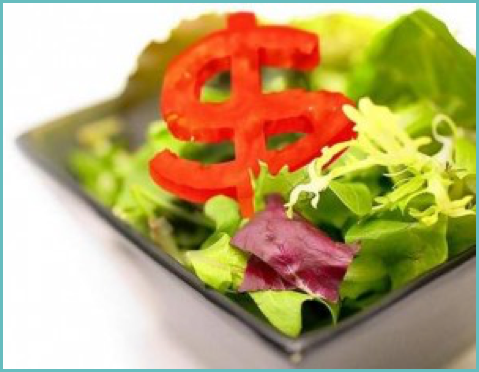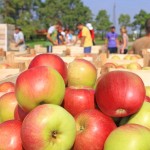By Peak Health and Fitness
Eating healthy can be affordable. Here are eight tips for shopping smart while on a budget.
1. Make a list and stick to it:
You can cut costs at the grocery store by buying only the foods that you need for the week. Making a list before going to the store will help you focus your shopping.
2. Shop the periphery:
Most healthy, nutrient-dense foods (fruits, vegetables, eggs, milk) are found around the perimeter of the store. Start there first before walking through the aisles. Aisles usually have convenience foods, which tend to be more expensive.
3. Buy frozen or canned:
Frozen or canned fruits and vegetables are sometimes less expensive than fresh produce. This is especially true if the fruit or vegetable is out of season. Plus frozen or canned produce have a longer shelf-life than fresh fruits and vegetables.
4. Don’t shop hungry:
You are more likely to overspend in the grocery store if you shop hungry. Try eating a snack before going shopping. That way you will be more able to resist buying snack foods that aren’t as healthy.
5. Buy store brands:
Store brands can be up to 20 percent cheaper than the national brand. Check your local grocery store for store brand foods to save money.
6. Search for sales:
Why pay full price? Use coupons when shopping to get the most bang for your buck. Sales and coupons are advertised in newspapers, on the internet, and also in the grocery store.
7. Back to basics:
Convenience foods are more expensive than foods made from scratch. Rather than buying frozen dinners, instant rice or packaged oatmeal, try making your own.
8. Buy fruit and vegetables in season:
Fruits and vegetables are cheaper when they are in season. Try shopping at a local farmer’s market for produce that is fresh and in season.
For more information about eating right, visit eatright.org.
AVOID A PAINFUL COMMUTE

Being stuck in a car for a long commute can cause serious problems for your neck, spine and back. Ryan Spiker, M.D., an orthopedist with University if Utah Health Care has some tips to avoid the pain.
Read the full story here.
SUPER FOODS FOR FALL

The summer is over, and the lush berries, peaches, and peas that we have enjoyed are giving way to their heartier autumn cousins. Which foods should you be eating for optimum health? Follow the signs of the season.
Click here to read the full story.
For more expert health news and information, visit healthcare.utah.edu/healthfeed.
 When it comes to fruits and veggies, more is what matters. After all, they are an excellent source of vitamins and fiber, they help maintain weight and energy, and they aid in disease prevention. For Fruits and Veggies—More Matters month, here are a few ideas for introducing extra produce into your diet.
When it comes to fruits and veggies, more is what matters. After all, they are an excellent source of vitamins and fiber, they help maintain weight and energy, and they aid in disease prevention. For Fruits and Veggies—More Matters month, here are a few ideas for introducing extra produce into your diet.
Slice half a banana to put on cereal in the morning.
Top pancakes or waffles with fruit instead of syrup.
Add spinach to scrambled eggs.
Put extra tomatoes, lettuce, and onions in tacos and burritos.
Add extra vegetables to canned soup.
Add frozen mixed vegetables to pasta sauces, casseroles, or rice dishes.
For more information about nutrition and cancer prevention, see our Healthy Eating Cookbook or call the G. Mitchell Morris Cancer Learning Center at 1-888-424-2100.

